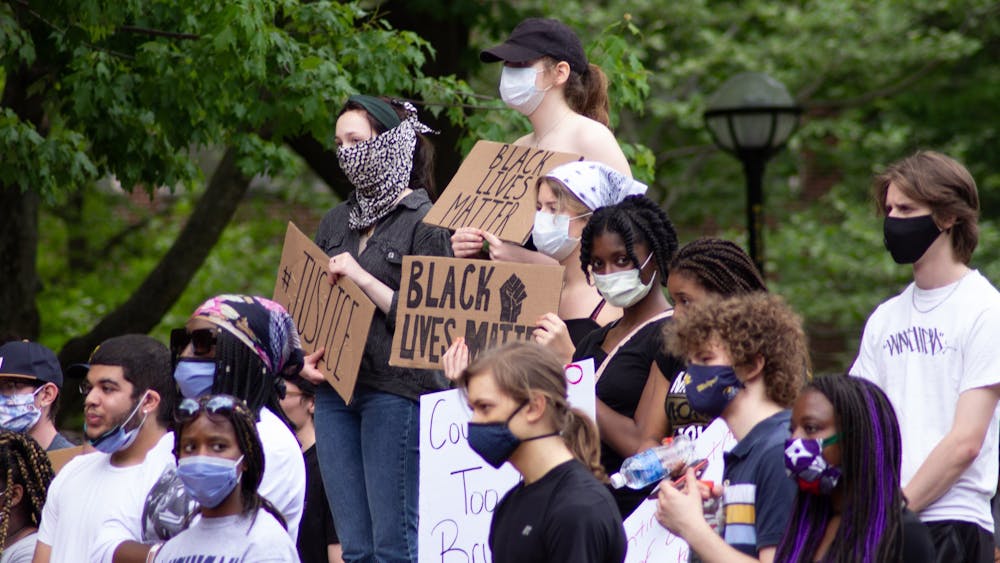The virus is likely coming into the prisons through staff. In a pandemic where we’re all asked to stay inside, inmates don’t have much choice in doing anything but that. Yet they’re suffering the consequence of getting sick from others that are going out and socializing.
Though distancing has been pushed, the quarters in which people reside are not spacious by any means. The spaces are small and packed to begin with. Even when the cell occupancy is lowered and group activities are distanced, it’s simply not enough to stop the spread.
In August, Gov. Gretchen Whitmer signed an order that requires all staff to be tested at least once a week if someone has tested positive or exhibited symptoms within the last 14 days. This is after cases in prisons surged again last month, similar to the spike that arose in the spring. This is a step in the right direction, but is a very late reaction considering the state has been in a state of emergency since March.
Worrying about getting sick is only one part of the weight on incarcerated people’s shoulders right now. While many of us are able to exert some control over our lives -- where we go, who we socialize with, and how we follow the state precautions -- they don’t have any of those choices. These decisions are being made for them, and so far- they’ve seemed unorganized and quite detrimental to inmates health.
In order to mitigate spread, inmates were put together based on their exposure to the virus or whether they tested positive for COVID-19. While this doesn’t seem like a bad idea on paper, what has actually played out is less than smooth sailing. Inmates feel like they are in the dark on test results and who has been exposed. They aren’t given much information on the matter, and discussions with one another shine light on discrepancies in the facility’s reporting.
An example of this is when people who were told they tested positive were put in a cell with people who were told they tested negative. This causes an understandable amount of confusion and frustration. At Gus Harrison Correctional Facility, this even led to a group of 200 inmates addressing a warden for the truth about their test results. That led to many of those inmates being punished for participating in the maneuver, as the warden felt endangered in that moment.
The most dire of these situations happens when a prisoner is sick with COVID-19. At least 35 people have been put into solitary confinement for months because they were positive for COVID-19. Experts from the UN denounce the use of solitary confinement, including prolonged and indefinite confinement lasting 15 days or more.
But prisoners have been held in these conditions for much longer than they ever should be. Solitary confinement is known to have negative effects on the body both physiologically and psychologically. Socially isolating someone from the world for months because they are ill is bound to take a toll on them mentally and physically.
When prisoners know they will face unethical conditions if they are sick, it can deter them from coming forward about their symptoms. Fear of what feels like punishment for being sick is keeping inmates who likely are sick from feeling safe enough to come forward about it.
To top it off, Michigan correctional facilities have less than 500 nurses statewide to care for a system with more than 37 thousand people. This means those that are in solitary confinement are seen by a medical professional only once a day. The following check-ins throughout the day are by correctional officers, who are also understaffed in facilities across the state.
Regardless of where you stand on the matter of criminal justice in the U.S., we are all human and should all be protected. We all hope that if any of our loved ones or ourselves fall ill, that we will be treated with care regardless of our pasts. Something you have done in the past, should not negate you treatment from a virus. If people are in prison to serve time for a crime, the terms of their sentence certainly didn’t include being subject to neglect during a worldwide health crisis.
When someone is sick, they’re a patient, no matter their criminal history. The way the American criminal justice system viewed incarcerated people was dehumanizing before the virus hit. But now, in a time where we’re all at the mercy of a virus, we cannot let some people suffer just because of societal bias. Incarcerated people deserve to be treated with the same respect and care any of us would expect.










